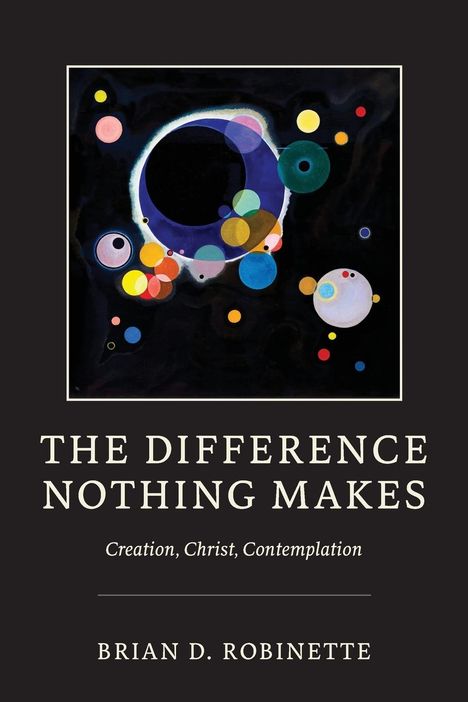Brian D. Robinette: The Difference Nothing Makes
The Difference Nothing Makes
Buch
- Creation, Christ, Contemplation
lieferbar innerhalb 2-3 Wochen
(soweit verfügbar beim Lieferanten)
(soweit verfügbar beim Lieferanten)
EUR 65,17*
Verlängerter Rückgabezeitraum bis 31. Januar 2025
Alle zur Rückgabe berechtigten Produkte, die zwischen dem 1. bis 31. Dezember 2024 gekauft wurden, können bis zum 31. Januar 2025 zurückgegeben werden.
- University of Notre Dame Press, 01/2024
- Einband: Kartoniert / Broschiert, Paperback
- Sprache: Englisch
- ISBN-13: 9780268203535
- Bestellnummer: 11596767
- Umfang: 338 Seiten
- Gewicht: 502 g
- Maße: 228 x 152 mm
- Stärke: 20 mm
- Erscheinungstermin: 15.1.2024
Achtung: Artikel ist nicht in deutscher Sprache!
Weitere Ausgaben von The Difference Nothing Makes
Klappentext
This book explores the doctrinal, social, and spiritual significance of a central yet insufficiently understood tenet in Christian theology: creation "from nothing."In this original study, Brian D. Robinette offers an extended meditation on the idea of creation out of nothing as it applies not only to the problem of God but also to questions of Christology, soteriology, and ecology. His basic argument is that creatio ex nihilo is not a speculative doctrine referring to cosmic origins but rather a foundational insight into the very nature of the God-world relation, one whose implications extend throughout the full spectrum of Christian imagination and practice. In this sense it serves a grammatical role: it gives orientation and scope to all Christian speech about the God-world relation.
In part 1, Robinette takes up several objections to creatio ex nihilo and defends the doctrine as providing crucial insights into the gifted character of creation. Chapter 2 underscores the contemplative dimensions of a theological inquiry that proceeds by way of "unknowing." Part 2 draws from the field of mimetic theory in order to explore the creative and destructive potential of human desire. Part 3 draws upon the Christian contemplative tradition to show how the "dark night of faith" is a spiritually patient and discerning way to engage the sense of divine absence that many experience in our post-religious, post-secular age. The final chapter highlights creatio ex nihilo as an expression of divine love-God's love for finitude, for manifestation, for relationship. Throughout, Robinette engages with biblical, patristic, and contemporary theological and philosophical sources, including, among others, René Girard, Karl Rahner, and Sergius Bulgakov.


